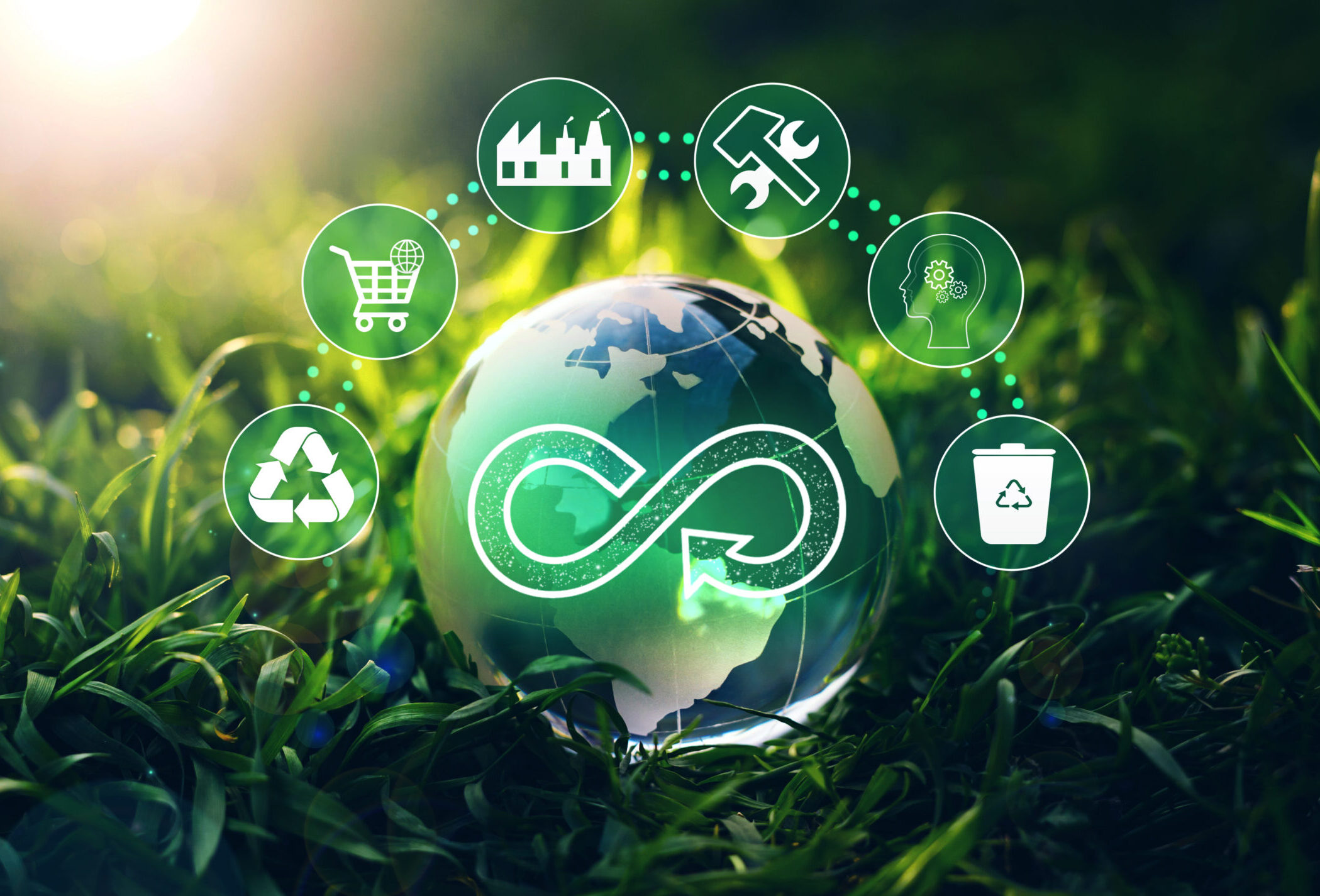
Embracing a Circular Economy – AlgoRhythm’s Path Towards Sustainability
In today’s world, we find ourselves entrenched in a linear economy, where products are created from raw materials, used briefly, and ultimately discarded as waste. This approach has significant environmental consequences, contributing to resource depletion and pollution. Enter the circular economy – a more sustainable alternative that focuses on reusing, recycling, and regenerating materials to minimise waste and maximise resource efficiency. In this blog post, we’ll explore the concept of a circular economy and how AlgoRhythm, a forward-thinking company, can play its part in fostering a more sustainable future.
Technical and Biological Materials in a Circular Economy
In a circular economy, two types of materials are recognised – technical and biological. Technical materials, such as metals and most plastics, do not biodegrade naturally. To ensure sustainability, we try to recycle these materials into new products to prevent them from becoming waste.
Biological materials, on the other hand, are biodegradable. This means they can naturally decompose over time. Items like food, wood, and natural fabrics fall into this category. The goal with biological materials is to ensure they return to the soil and support a continuous cycle of use.
One challenge in the circular economy arises when different materials are mixed together, making it difficult to recycle or decompose them properly. For example, some clothing blends contain both biodegradable and non-biodegradable materials, (e.g. polycotton), ultimately meaning the blended fabric cannot be recycled back into the soil.
Technical Cycle: Rethinking Recycling
Recycling, while valuable, should be seen as a last resort in the circular economy. For products like computers and smartphones, where the value lies in the whole product rather than individual components, remanufacturing and repairing become more environmentally friendly alternatives. Catching and addressing issues early can save substantial resources, as products are kept in use at their optimal level. Sharing items is another great way to promote sustainability. Sharing seldom-used products with friends, family, or colleagues means that more people can benefit from a single item, reducing the need to produce new ones.
Biological Cycle: Embracing Regeneration
In the biological cycle, cascading materials through various uses prolong their lifespans and reduces waste. For example, wooden desks could be repurposed into a particle board, and after this use, could be broken down to compost. Regeneration is also about giving back to nature. Composting food waste and returning it to the soil enriches the earth and helps produce higher-quality food.
AlgoRhythm’s Contribution to the Circular Economy
At AlgoRhythm, we’re committed to sustainability and can make a positive impact on the circular economy by:
- Prioritisation of repairing faulty electronics and equipment to extend their lifespans.
- Sharing seldom-used items with colleagues, clients and partners.
- Implementing efficient recycling practices and composting biodegradable waste.
- Encouraging the use of reusable cups and utensils to reduce single-use items.
- Opting for remanufacturing instead of purchasing entirely new products when possible.
- Considering leasing certain items to promote longevity.
- Optimise office moves to make use of existing furniture or donate it to others, reducing waste.
In conclusion, transitioning from a linear economy to a circular one is not a simple task, but it is a necessary step toward a sustainable future. By understanding the importance of recycling, remanufacturing, repair, and regeneration, AlgoRhythm can actively contribute to the circular economy and inspire others to follow suit. Every small action taken collectively contributes to a more efficient and eco-friendly way of living, and together, we can create a greener and healthier planet for generations to come.
